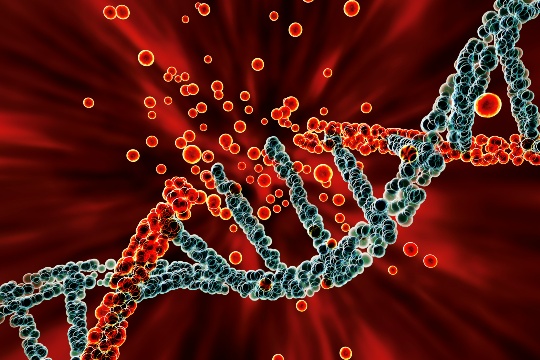Research Reinforces Gene Mutation Links to Mesothelioma
Research & Clinical TrialsWritten by Tim Povtak | Edited By Walter Pacheco

More than ever, Dr. Michele Carbone at the University of Hawaii Cancer Center believes early testing for genetic mutations can lead to fewer cases of malignant mesothelioma and a longer survival time for many who do contract the disease.
Lives can be saved. Years can be added.
“It could change the way we treat these patients,” Carbone told The Mesothelioma Center at Asbestos.com. “And, in some cases, it could prevent the cancer entirely.”
Carbone is director of thoracic oncology at University of Hawaii and a world leader in identifying the role of genetics in the development of mesothelioma cancer.
He led a team of researchers and scientists who recently identified how mutations of the BLM gene were making individuals more susceptible to developing mesothelioma when exposed to asbestos, the primary cause of the disease.
Their findings were published in December by Proceedings of the National Academy of Sciences of the United States of America, also known as PNAS. The National Institute of Environmental Health Sciences named the study Paper of the Month.
“Testing should be offered to anyone with mesothelioma,” Carbone said. “Testing could also identify someone who is at higher risk for the disease, allowing them to take precautionary measures to avoid any asbestos exposure.”
BAP1 Gene Mutation for Mesothelioma
Testing of family members of mesothelioma patients also would help determine if they are more susceptible to the cancer. Less than half of mesothelioma patients today undergo genetic testing.
Uncovering the link to the BLM gene mutation is similar to what Carbone and his team identified almost a decade ago as the BAP1 gene mutation, an even stronger indicator.
Until BLM, the BAP1 mutation was the only known biological mechanism that made people more susceptible to mesothelioma.
“When we started this, nobody knew why some – most – who are exposed to asbestos never got the disease, but others did. Now we know why,” Carbone said. “We’ve shown why some people are more susceptible, born with this mutation of genes.”
The mutation of these tumor suppressor genes create genomic instability, a reduction of an essential protein being expressed, and alter inflammatory responses.
Bad and Good of Genetic Mutations
While the gene mutation makes a person more susceptible, it also improves chances of long-term survival, making it a bad-news, good-news discovery.
“At one end, it’s a mutation [BAP1] that favors the initial growth of cancer cells,” Carbone said. “On the other side, it’s a mutation that somehow impairs the growth of those cells.”
An earlier study by Carbone’s team found a median survival of five years for patients with the BAP1 mutation, compared to less than one year for those without the mutation.
One reason was that the BAP1 mutation group in the study was considerably younger when diagnosed. Their disease was less aggressive, and also seemed more receptive to treatment.
Treating Mesothelioma Patients with Mutations
Since the BLM discovery, Carbone has recruited mesothelioma doctors from around the world to participate in a Zoom conference call later this month to discuss the best ways to treat patients with these mutations.
“Clearly there is a difference in the patients, a huge difference,” he said. “The whole concept today of personalized medicine is based on genetic makeup of the tumor. It’s important for a patient, and his physician, to know. It could change the way you treat a patient.”
Genetic testing of patients never diagnosed with mesothelioma is part of another ongoing study by Carbone, funded by the National Institutes of Health. In one area of northern Nevada – where exposure to environmental asbestos is higher than normal – more than 50,000 residents already have been screened.
The idea is to identify those with higher risk of developing mesothelioma or other cancers.
“If you have the mutation, you might not want to live there, or at least not go into a profession where you are likely to be exposed to asbestos,” Carbone said. “That kind of intervention could prevent the cancer from happening.”
Clinical Trial Explores Genetic Mutations for Mesothelioma
Genetic testing might also be an effective prevention for anyone in the home or office renovation industry, where handling legacy asbestos products is common and part of the job.
The National Cancer Institute also is conducting a clinical trial that is using mesothelioma patients and family members to further explore predisposition based on genetic mutation, and looking for ways to negate it.
“We suggest genetic testing to help identify individuals at higher risk, and provide mutation carriers the option to implement simple preventative measures to asbestos and other carcinogenic fibers, to decrease their risk of developing mesothelioma,” authors of study concluded.






